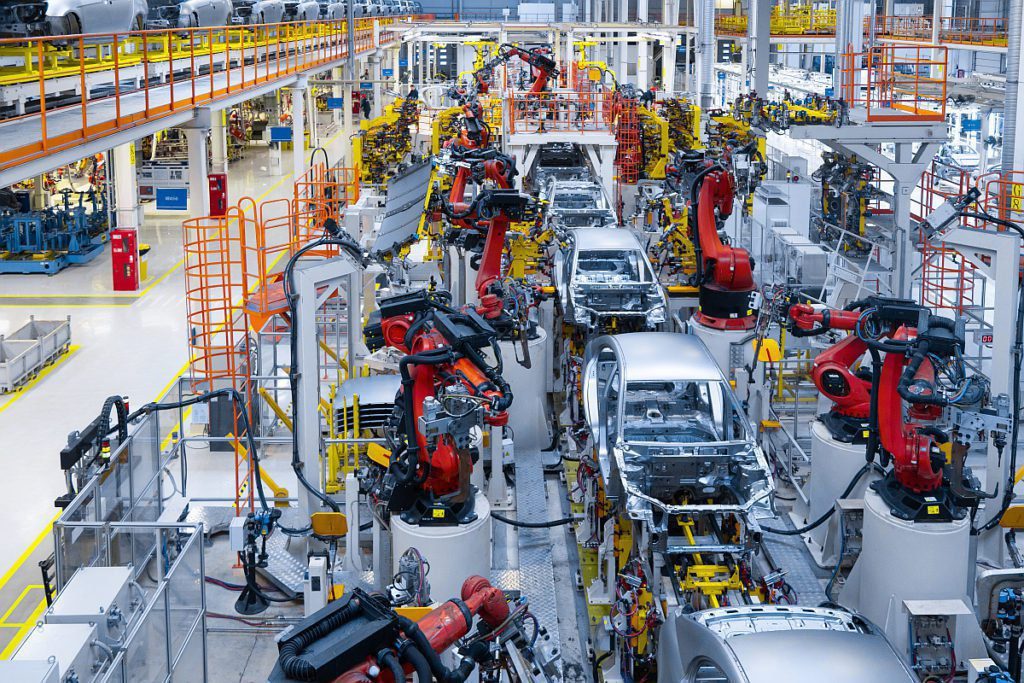The auto industry makes up about 3 per cent of global economic output.
Turmoil in the auto industry, a significant part of the global economy, is threatening growth and sending tremors through companies and communities that depend on carmakers for money and jobs.
For every car or truck that does not roll off an assembly line in Detroit, Stuttgart or Shanghai, jobs are in jeopardy. They may be miners digging ore for steel in Finland, workers molding tires in Thailand, or Volkswagen employees in Slovakia installing instrument panels in SUVs. Their livelihoods are at the mercy of supply shortages and shipping chokeholds that are forcing factories to curtail production.
The auto industry accounts for about 3 per cent of global economic output, and in carmaking countries like Germany, Mexico, Japan or South Korea, or states like Michigan, the percentage is much higher. A slowdown in automaking can leave scars that take years to recover from.
Parts crisis
The shock waves from the semiconductor crisis, which is forcing virtually all carmakers to eliminate shifts or temporarily shut down assembly lines, could be strong enough to push some countries into recession. In Japan, home of Toyota and Nissan, parts shortages caused exports to fall by 46 per cent in September compared with a year earlier – a potent demonstration of the car industry’s importance to the economy.
“It’s a very meaningful drag on growth and employment,” said Ian Shepherdson, chief economist at Pantheon Macroeconomics.
Paul Jacques is among the people who may be most profoundly affected. He works in Tecumseh, Ontario, for a division of components supplier Magna International, which makes seats for a nearby Chrysler minivan factory.
Jacques, 57, was on the assembly line when he heard that Stellantis, Chrysler’s parent company, planned to eliminate a shift in Windsor, Ontario, because of shortages of semiconductors, the computer chips essential to cruise control systems, engine management and a host of other functions.
Jacques and his co-workers knew that their jobs were in danger, too. “The mood became incredibly somber,” said Jacques, whose two children also work at the seat factory.
Prices hikes
Carmakers have been able to blunt some of the sting by raising prices, passing on some of the pain to car buyers. Ford and General Motors last week both reported big drops in sales and profits for the summer period, but raised their profit forecasts for the full year. Daimler, the maker of Mercedes-Benz cars, said Friday that its net profit rose 20 per cent in the third quarter even though the company sold 25% fewer vehicles. Higher sticker prices more than compensated.
The pain is falling hardest on workers and anyone in need of an affordable car. Auto companies have been allocating scarce chips to high-end and other vehicles that generate the most profit, leading to long waits for less expensive vehicles. Used car prices are skyrocketing because of the lack of new cars.
Vehicles with high profit margins like Ford F-150 or Chevy Silverado pickups “are continuing to get pumped out,” said Ram Kidambi, a partner at consulting firm Kearney who is based in Detroit. “But vehicles that have lower margins are getting impacted, and therefore the workforce there is getting impacted.”
(Except for the headline, this story has not been edited by The Finance World staff and is published from a syndicated feed.)


